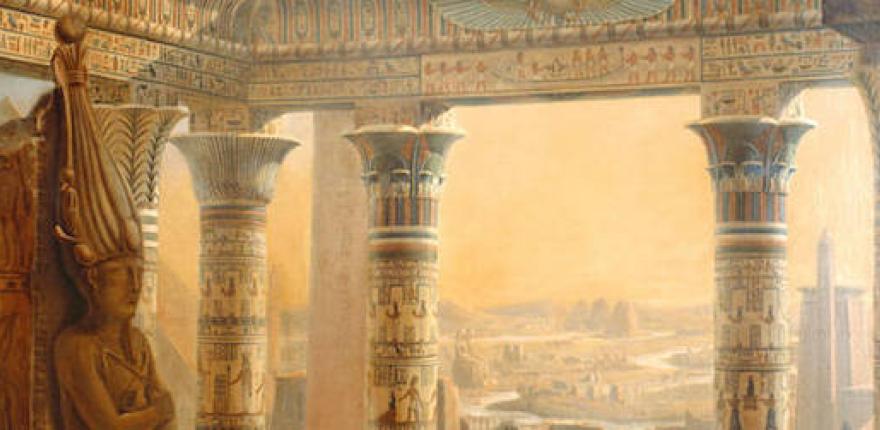Course length
10 months, full-time
Assessment
3 x modules
Graduate Research Skills
Dissertation of up to 15,000 words
Department of Archaeology

The MPhil in Egyptology is a full-time one-year course, combining teaching on a range of topics with a short research dissertation. The topics are taken from the historical archaeology of ancient Egypt and study of its ancient languages, including Coptic and Demotic. Students may follow either an archaeologically or linguistically oriented pathway or combine elements of both.
The course provides the student with a detailed knowledge of one or more aspects of the culture of ancient Egypt, with a focus on historical archaeology, landscape and built environment, material culture, art, and the language of one or more periods of Egypt's history. With the possibility of borrowing one module from the MPhil in Archaeology or MPhil in Assyriology programmes, the student will have the opportunity to place the specific Egyptian case in context, for example by comparing it with contemporary Mesopotamia, by learning methodologies for particular research projects, or by using it to address general and theoretical issues in the study of early societies and cultural heritage.
This taught MPhil recruits students who are prepared for postgraduate work and wish to undertake research in the field of ancient Egypt, but who need further training in either the language(s) or the archaeology of the region. It is a demanding course which delivers competence in language and/or specialist knowledge of Egyptian history and culture over a relatively short time frame.
The aims of the course are to:
The MPhil in Egyptology is taught through lectures, seminars, museum-based practicals, and written work; the teaching methods vary according to the option chosen (see below). The common goal is to ensure that students acquire a base of knowledge particular to their option. For language papers this includes acquiring translation skills and practicing textual analysis and commentary. For archaeology papers this includes practice in reading critically, analysis, writing and presentation.
Lectures are designed to cover major academic disciplines concerned with ancient Egypt: historical archaeology, religion and material culture including art architecture.
Language classes teach Ancient Egyptian language at introductory and advanced levels, as well as Coptic and Demotic, with initial instruction in grammar followed by reading classes for which the students prepare prescribed texts appropriate to the level they have achieved.
Seminars are designed to provide students with intensive engagement with academic staff across a wide range of subjects relevant to the courses selected. Individual subjects for each seminar are selected in the light of the interests of the students concerned and a reading list supplied. The seminars are designed to be interactive and preparation and participation in seminars is expected of all students.
Supervisions with a regular supervisor are conducted on a one-to-one basis and give the student the opportunity to discuss general and specific issues in the conduct of the course. A supervisor, possibly, but not necessarily the same one, will also be appointed for the dissertation, to help with the choice of topic and monitor the progress of the student's research for the dissertation throughout the year. Supervisions provide the student with an opportunity to seek academic information and advice and they provide the forum to monitor a student's progress.
Practical sessions in the Fitzwilliam Museum and Museum of Archaeology and Anthropology give students hands-on experience with Egyptian artefacts.
The structure of the MPhil in Egyptology includes five elements:
Modules are chosen to form a coherent programme of study allowing both breadth and specialisation. Of the three modules besides Research Skills, the first module can be any Egyptology language or archaeology option (all but the last module listed below); the same is true for the second module. The third module can be any module in Egyptian archaeology or culture (modules 5-8 below), but it can also be another MPhil option offered in the Department of Archaeology (module 9 below).
This allows students to combine topic, area and method-oriented modules in a way tailored to their particular research interests; the student's choice of modules must be approved by the MPhil in Egyptology coordinator to ensure a coherent course of study.
Prospective students are strongly advised to contact the MPhil in Egyptology coordinator Dr Hratch Papazian about choice of modules and research topic before putting in an application.